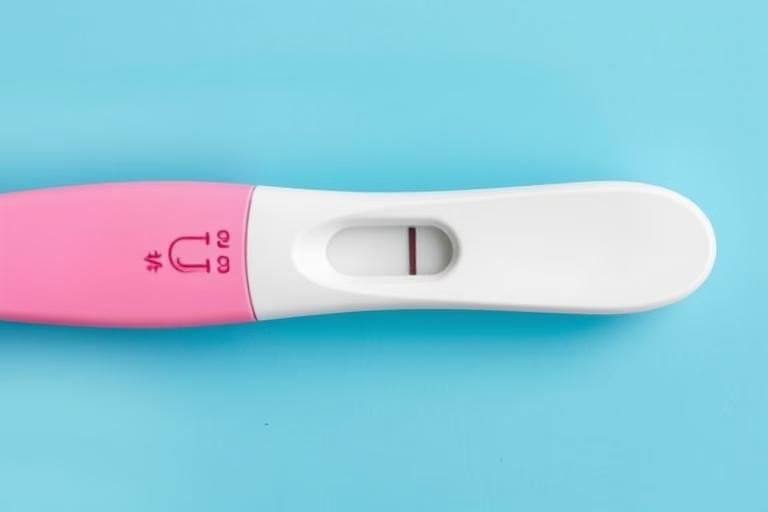Understanding Implantation Bleeding
Implantation bleeding is a light spotting that occurs when a fertilized egg attaches itself to the lining of the uterus. This usually happens around 6 to 12 days after conception, which can often lead to confusion among those trying to conceive. Many wonder if this bleeding is a sign of pregnancy and when is the right time to take a pregnancy test. Recognizing the timing and nature of implantation bleeding can be crucial in understanding one’s reproductive health.
This type of bleeding is generally light pink or brown in color and lasts for a few hours to a few days. It’s important to note that not all women experience implantation bleeding, and its presence does not guarantee pregnancy. Hence, understanding the timing for taking a pregnancy test after experiencing this type of bleeding can be crucial for those seeking confirmation of pregnancy.
Signs of Implantation Bleeding
Recognizing the symptoms of implantation bleeding can provide reassurance or insights into one’s pregnancy status. Common signs include:
Spotting can often be mistaken for an early period. Understanding these differences can help determine whether a pregnancy test is needed soon after experiencing such bleeding.
When to Take a Pregnancy Test
After experiencing implantation bleeding, timing becomes essential when deciding to take a pregnancy test. Generally, it is advisable to wait at least for a week after the bleeding occurs. Testing too early may yield inaccurate results.
Pregnancy tests work by detecting levels of the hormone human chorionic gonadotropin (hCG), which usually takes time to build in the body post-implantation. Therefore, when one notices implantation bleeding, waiting for about a week, or until the expected date of a missed period, can ensure more reliable results.
Types of Pregnancy Tests Available
There are primarily two types of pregnancy tests available: home pregnancy tests and those conducted in a healthcare environment.
Understanding the types of tests available can help individuals choose their preferred method and set expectations for results.
Factors Influencing Test Accuracy
Various factors can impact the accuracy of a pregnancy test:
Understanding these factors plays a significant role in ensuring that individuals can accurately interpret their test results.
Signs Indicating a Need for Medical Consultation
In some cases, if you experience unusual bleeding, it’s essential to consult with a healthcare provider:
Recognizing these signs early can help mitigate any potential complications, especially in a possible pregnancy scenario.
Common Myths about Implantation Bleeding and Pregnancy Tests
Myths surrounding pregnancy and related symptoms are widespread. Clarifying these can aid in making educated decisions regarding pregnancy tests:
Counteracting these myths with facts is essential for understanding pregnancy and reproductive health.
Impact of Stress on Testing and Results
Stress can profoundly impact one’s health and the body’s hormone production. This can lead to missed periods or even false readings on pregnancy tests:
Engaging in stress-reducing methods, such as meditation or yoga, is beneficial for mental and physical health during this sensitive time.
Final Thoughts
Understanding when to take a pregnancy test after experiencing implantation bleeding is vital. Implantation bleeding can often lead to confusion, especially regarding timing for testing. It is important to recognize the signs of implantation bleeding and differentiate them from regular menstrual bleeding. This can help determine the right moment to test for pregnancy accurately.
After noticing any signs of implantation bleeding, generally, it’s best to wait one week for the most accurate results. Being aware of the factors that influence the accuracy of pregnancy testing and understanding the types of tests available are also crucial. Each individual’s experience with pregnancy symptoms is unique, and seeking medical advice in case of unusual symptoms should always be a priority.
Myths surrounding pregnancy can often lead to stress and uncertainty. Being informed and educated about the process can help ease anxiety. Stress management techniques are essential for maintaining overall health during this time.
In conclusion, the journey of understanding pregnancy confirmation can be complex but manageable with the right knowledge and support.
Frequently Asked Questions
Implantation bleeding is light spotting that can occur when a fertilized egg attaches itself to the uterine lining, typically occurring 6 to 12 days after conception.
Implantation bleeding is usually lighter, shorter in duration, and typically does not have clots like a regular period.
It is advisable to wait about one week after the bleeding occurs to take a pregnancy test for the most accurate results.
Yes, testing too early, low hCG levels, improper testing, or expired tests can lead to false negatives.
Yes, if you experience heavy bleeding or severe pain, it is crucial to seek medical advice to rule out any complications.
Further Reading
What Type of Psychotherapy Is Best for Anxiety?







